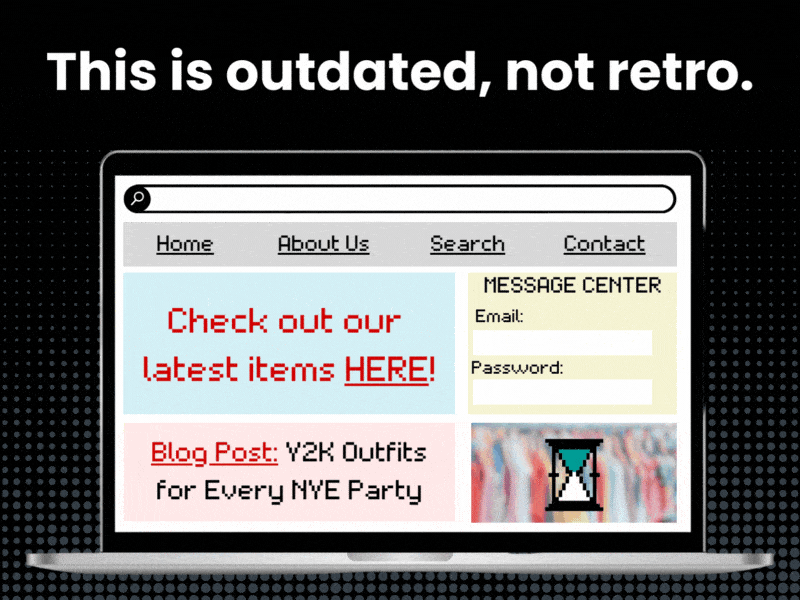What are Inbound Links? A Quick Guide

With Google recently launching its Penguin update to target manipulative link-building strategies, keeping the content on your website high-quality has become a little trickier — according to Google's algorithm, at least. Who made these manipulative links? Cruella?
It's more important than ever to be aware of the different kinds of links that content might have as well as when and how to use them.
Inbound links are one such type. Your WP Guy can keep you informed about your inbound links. As well as help execute the proper strategies to make sure they're valuable for your readers (and for Google).
What Are Inbound Links?
The first thing you need to do is understand the answer to the question, "what are inbound links exactly?"
Inbound links come from an external site to yours. INCOMING!
They usually link from a related piece of content to something you might have written or advertise your product or service mentioned in the anchor text (the linked text).
Why Use Them?
There are a few reasons to use inbound links. Maybe even 101 but you can’t narrow down to one because they're all important!
To Get Traffic on Your Site
The first reason to build inbound links coming to your website is simple — to direct traffic to your website. If another site is mentioning something that's relevant to your company, it's great to have a reader directed back to you. Like attracts Like!
To Promote Sales
If you sell services or products on your website, inbound links from other sites can help to generate these.
For example, if someone is writing a blog post on dog training on another site and you sell supplies such as clickers or comfortable harnesses, they could link back to your site from theirs. Even if the consumer wasn't directly searching for that product, they might be tempted to buy it. GO GET EM BOY!
For Search Engine Optimization Purposes
The last — and perhaps more important reason — is for Search Engine Optimization (SEO) purposes.
If you have inbound links coming to your website, Google's algorithm will decide that your website is more authoritative and trustworthy. The more inbound links you have coming from good sources, the higher you're likely to rank on Google.
How Do You Build Them?
So now that you know what inbound links are, how do you get some?
Ask Suppliers
If you sell products on your online store, ask the manufacturers of those products to link to you on their website. Often people will hit the manufacturer's website before they come to yours, and finding a place to actually buy the product is their goal. You want to be the top choice even if a number of different stores sell those products. Its like speed dating but with links!
Content Marketing
You can create inbound links without asking for favors from others. Create supporting sites for your service. For example, if you sell nutritional supplements, creating a blog with content surrounding them can help to link back to the actual products themselves. Now that’s supplemental.
Work With Bloggers
Of course, there are already some super established bloggers out there with high-ranking websites.
You can work with them to get inbound links back to you. For payment or a gift, they may be willing to review your product or simply mention it in a related post.
Give Back
Because inbound links generally require working with other people, you should make sure you're giving back and offer some outbound links too. This will help you build a good relationship with other companies and they may be willing to be more generous in promoting your content or products.
Common Inbound Link Mistakes
It's not just as easy as stuffing in as many inbound links as you can find. There are some common mistakes people make with their inbound link building that you should generally avoid.
Changing URLs
When someone has linked to a page on your site, you should try to avoid changing the URL. Even if you set up a redirect, this can end up causing a loop, and Google generally won't like that. It can ruin all the rankings you had on that page.
Low-Authority Sites
While it's great to have as many links as possible, you should do your utmost to make sure they're coming from high-authority sites.
If they're sites that Google might deem as spam, they won't help you.
Some reasons Google might not like them include:
- Stuffing too many links in a single page
- Having a slow page load time
- They have too many broken links there already
It's a good idea to examine sites and see exactly what the quality of content is before you ask them to link back to you.
Irrelevant Links
It's important not to frustrate traffic coming to you and ensure the links are relevant — otherwise, people will click off the page within seconds and that can damage you more than help. It might be tempting to stuff links in where there's only slight relevance, but try to make sure they're authentic and can genuinely help.
Why Are Inbound Links Important to Your Small Business?
Inbound links can help ensure your website is visible on search engines and appears at the top of relevant queries. It's like having a hidden treasure chest of SEO gold - when leveraged properly, inbound links can be incredibly valuable for driving traffic back to your site.
For small businesses with limited budgets, inbound links provide a pathway to your website at no additional cost. Plus, inbound links can help small businesses gain credibility as customers and other websites recognize your content as being worthy of linking to from their own sites.
Inbound Links Are a Great Marketing Strategy
Inbound links are great for marketing. Although you can do a lot on your own to increase the credibility of your website and help SEO, involving other websites is huge for your Google rankings — and when it comes to traffic, you might find most of it comes from organic sources.
Do you need help with your inbound link-building strategy or other aspects of SEO and marketing? Your WP Guy is here to help! Schedule a consultation today and let's see how we can get traffic flowing to your website.
What are Inbound Links? A Quick Guide
• Understanding inbound links and their relevance is key to successful SEO.
• Inbound links come from external sites and are generally linked to related content or anchor text.
• Using inbound links can generate traffic, promote sales, and improve your website's search engine ranking.
• To build high-quality inbound links, one should ask suppliers, create content marketing material, work with bloggers, give back by offering outbound links, avoid changing URLs of inbound sites and linking to low-authority sites with too many broken links.



